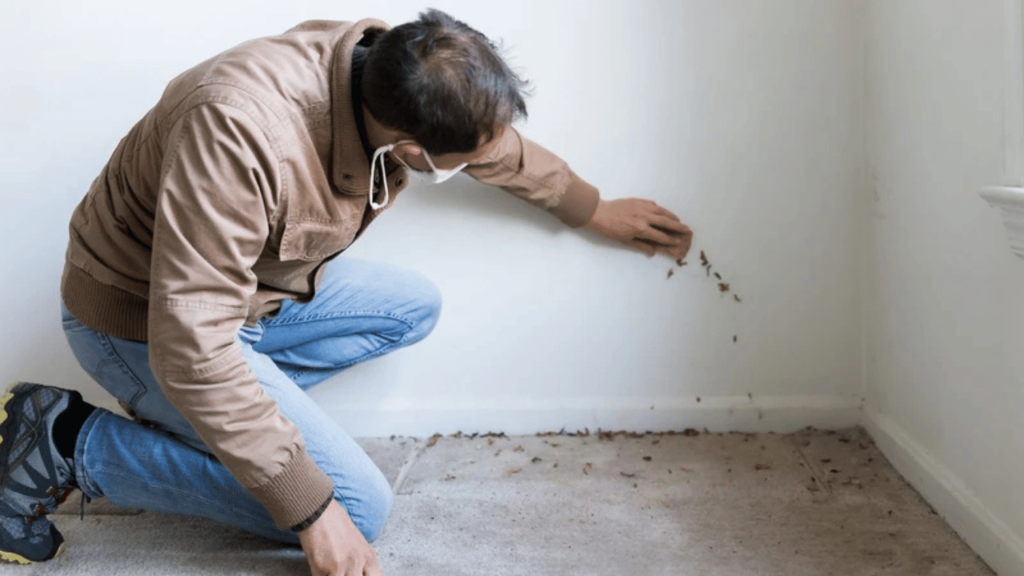
Want to get rid of pincher bugs and don’t know what to do? Don’t worry we got you. Pincher bugs, also known as earwigs, are common pests that can be a nuisance both inside and outside your home. If you’ve seen these insects crawling around your Virginia Beach house, it’s important to know how to get rid of pincher bugs effectively.
This information will give you practical & DIY methods, prevention tips, and everything you need to know to keep your home free of pincher bugs.
What Are Pincher Bugs?
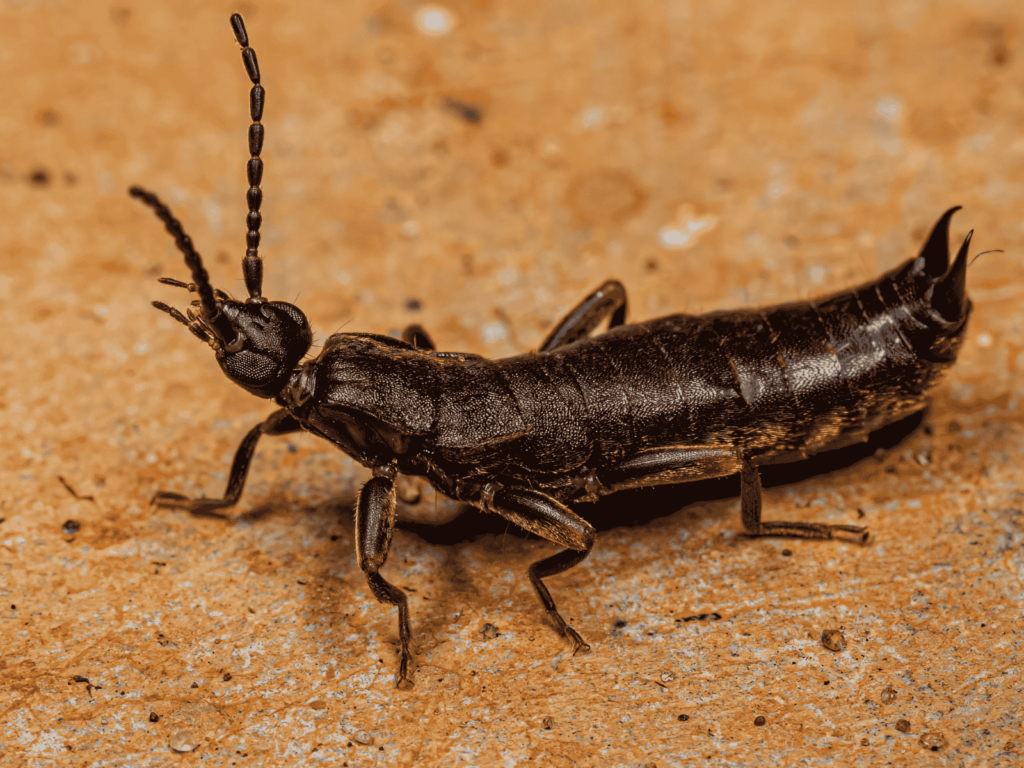
Pincher bugs, or earwigs, are small, reddish-brown insects that are about 1/2 to 3/4 inch long. They are easy to recognize because of the pincers on the end of their abdomens. These pincers might look scary, but they’re mainly used for defense, mating, and catching prey. Earwigs are nocturnal, which means they are active at night. During the day, they like to hide in dark, damp places like under rocks, mulch, or leaves. They are also attracted to areas with plenty of plant debris, as these provide food and shelter.
In North America, the most common earwig species is Forficula auricularia, originally from Europe. They were first reported in the early 1900s and have since spread throughout most of the United States and parts of Canada.
Earwigs are omnivores, which means they feed on a wide variety of organic material. They eat decaying plant matter, smaller insects, and even tender leaves of plants. While they rarely bite humans, their pincers may give a slight pinch if handled, although they are not harmful to people. Understanding their behavior and habitat is key to effectively managing and preventing infestations.
Signs of a Pincher Bug Infestation
Pincher bugs are usually harmless, but they can be a problem if they start getting into your home in large numbers or damaging your plants. Here are some signs you might have a pincher bug infestation:
- Damaged Leaves: If you see jagged holes in the leaves of your plants, it might be because earwigs are feeding on them at night. They particularly enjoy plants like marigolds, dahlias, and lettuce, and can cause significant damage to these plants.
- Presence Indoors: Earwigs often come inside looking for moisture, especially during dry weather or cooler seasons. You might find them in bathrooms, basements, or kitchens, especially near areas with water. They are commonly seen in areas with high humidity, such as laundry rooms and under sinks.
- Droppings: Small, black pellets near hiding places could be earwig droppings. These droppings can sometimes be found near plants or other areas where they are feeding.
How to Get Rid of Pincher Bugs
There are several ways to get rid of pincher bugs, including natural deterrents and traps. Here are some effective methods:
1. DIY Traps
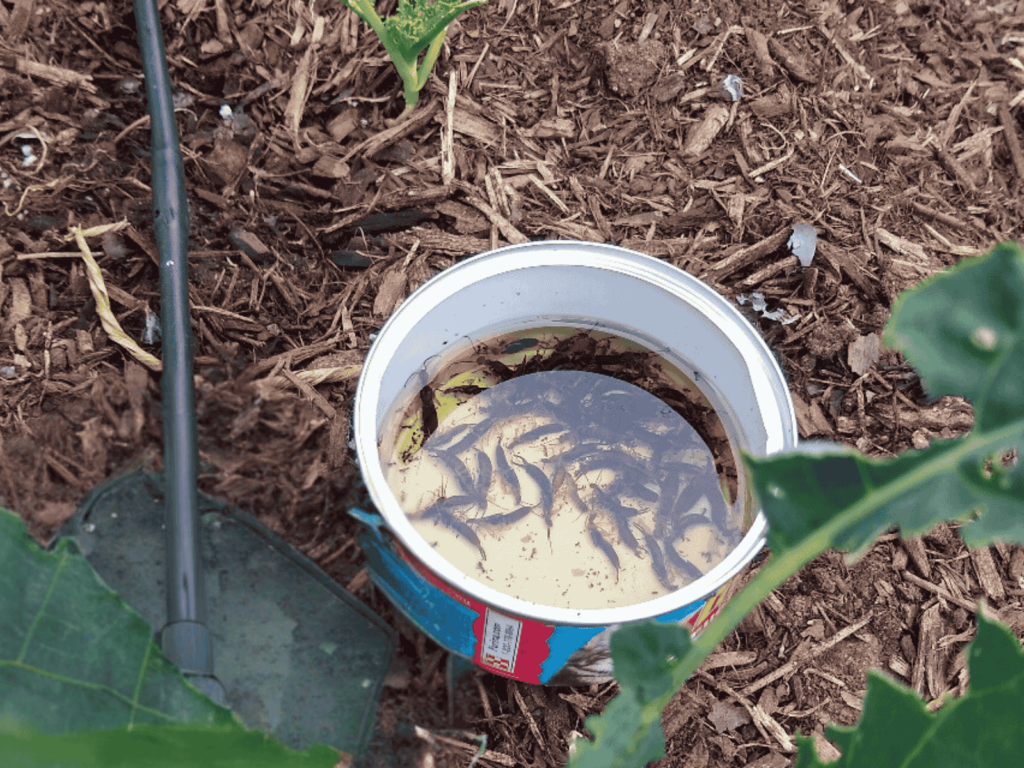
- Soy Sauce and Oil Trap: You can make an effective trap using soy sauce and vegetable oil. Mix equal parts of soy sauce and oil in a shallow container with a lid. Punch holes in the lid and bury the container so that the holes are at soil level. The soy sauce attracts the earwigs, and the oil traps them inside. This method works well because the smell of soy sauce is irresistible to earwigs, and the oil makes it impossible for them to escape once they fall in.
- Rolled-Up Newspaper Trap: Lightly wet a newspaper, roll it into a loose tube, and leave it overnight in areas where you’ve seen earwigs. Earwigs are attracted to the damp newspaper and will crawl inside. In the morning, you can throw away the newspaper with the trapped bugs. This method is simple, cost-effective, and doesn’t require any harmful chemicals.
2. Moisture Control
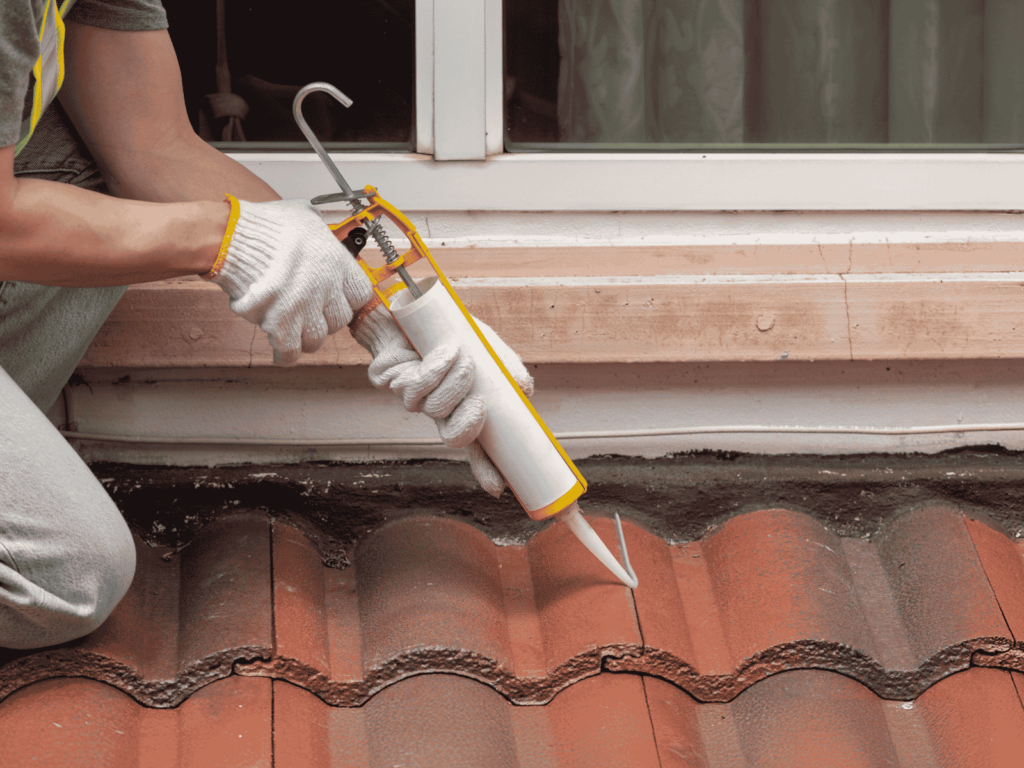
Earwigs are attracted to moisture, so controlling moisture levels is key to reducing their presence. Here’s how to do it:
- Fix Leaks and Use Dehumidifiers: Fix any leaky faucets or pipes, and use dehumidifiers in damp areas like basements or crawl spaces. Reducing moisture will make your home less appealing to earwigs and can help prevent them from coming inside.
- Improve Ventilation: Make sure your home has good ventilation, especially in attics and bathrooms, to keep moisture levels low. Proper ventilation in high-humidity areas can go a long way in preventing earwig infestations.
- Gutter Maintenance: Keep your gutters clean and ensure proper drainage to avoid excess moisture around your home’s foundation. Clogged gutters can lead to damp conditions that attract earwigs and other pests.
3. Physical Barriers and Deterrents

- Seal Entry Points: Prevent earwigs from getting in by sealing cracks and gaps around windows, doors, and other openings. Use caulk to seal any small crevices and ensure door sweeps are in good condition to keep bugs out.
- Petroleum Jelly: Put petroleum jelly around the stems of your plants. This makes it harder for earwigs to climb up and eat your plants. This barrier method is safe for plants and provides an effective deterrent.
- Diatomaceous Earth (DE): DE is a natural powder that dehydrates earwigs when they come into contact with it. Sprinkle it around the base of your plants or near areas where you think they are entering. Diatomaceous earth is also safe for pets and people, making it a great natural option for pest control.
4. Natural Predators
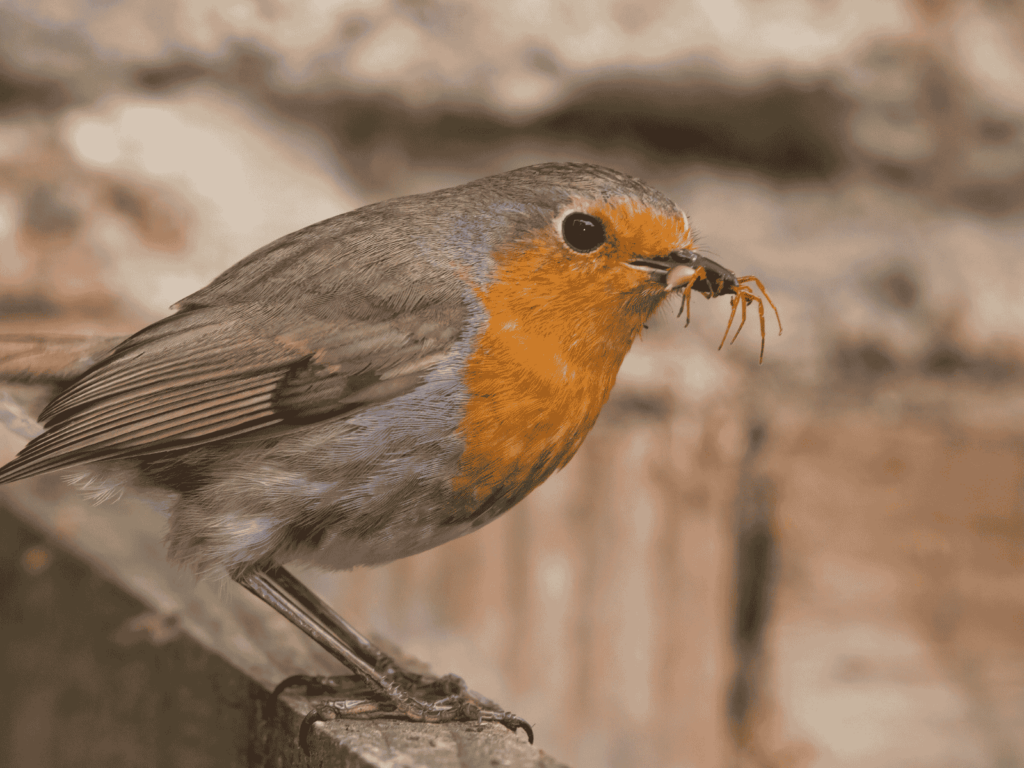
Encouraging natural predators can help keep earwig numbers under control:
- Birds and Toads: Birds, toads, and other animals eat earwigs. You can put up bird feeders or create a garden that attracts these animals to help control the earwig population. Adding birdhouses or a small water feature can make your garden more inviting to these natural predators.
- Beneficial Insects: Predatory insects like ground beetles and tachinid flies also prey on earwigs. Encouraging a diverse range of insects in your garden can help naturally reduce earwig numbers.
Prevention Strategies for Long-Term Control
To prevent earwigs from coming back, consider these long-term strategies:
- Reduce Outdoor Hiding Spots: Remove mulch, leaves, and wood piles from around your house, as these places are ideal for earwigs to hide. Keeping these areas clear will reduce the number of places earwigs can nest and breed.
- Adjust Watering Practices: Water your garden in the morning so that it dries by night, making it less attractive to earwigs. Wet soil and plants at night provide an ideal environment for earwigs to feed and hide.
- Keep Gutters Clean: Make sure your gutters are clean and drain properly, since clogged gutters can lead to extra moisture around your home. Regular gutter maintenance can prevent standing water and reduce the likelihood of earwigs seeking shelter in your home.
- Yard Maintenance: Regularly trim shrubs and grass near your home’s foundation. Overgrown plants can trap moisture and provide hiding places for earwigs, increasing the likelihood of them moving indoors.
When to Call a Professional
If you still have a problem with pincher bugs after trying these methods, it might be time to call a pest control professional. They can create a plan that is specific to your home and use stronger products that are safe and effective. Professional pest control services can also help identify and address any underlying issues, such as moisture problems or structural concerns, that may be contributing to the infestation.
Final Thoughts
Pincher bugs may look scary, but with the right strategies, you can keep them out of your home and garden. Using a mix of traps, moisture control, physical barriers, and preventive measures will help you manage earwigs effectively and keep your house pest-free. By taking a proactive approach to controlling moisture and reducing hiding spots, you can make your home less appealing to these pests. Remember that while earwigs may seem intimidating, they are generally harmless and can even be beneficial in controlling other pests in your garden.
Maintaining a clean and well-ventilated home environment, along with using natural deterrents and encouraging predators, will help ensure that earwig problems remain a thing of the past. If all else fails, don’t hesitate to reach out to a professional pest control service to help keep your home comfortable and pest-free.

